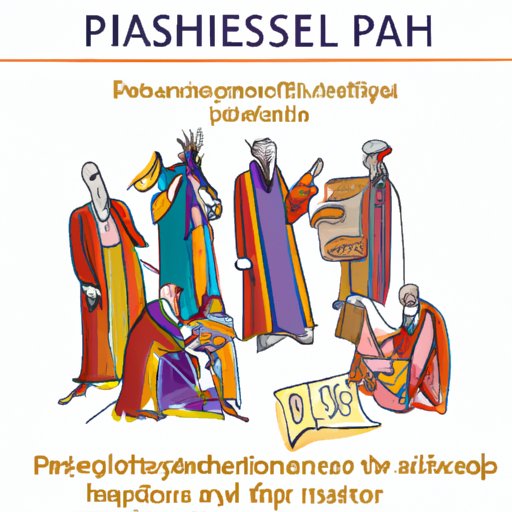Introduction
When most people hear the term “Pharisee,” they think of a religious hypocrite, someone who is legalistic and judgmental. However, the truth is that Pharisees were a Jewish sect during the Second Temple period that believed in strict adherence to the law and tradition. This article will explore the historical context of Pharisaism, its portrayal in the Bible, and its relevance today.
Historical Context
During the Second Temple period, the Jews were ruled by foreign powers, and the priesthood was corrupt. A group of Jews formed a sect known as the Pharisees, which emphasized the importance of following the law as well as oral tradition. They believed that by following these practices, they would remain faithful to God. Pharisees were often referred to as “separated ones” because they believed in being separate from the world and its influences.
Pharisees practiced the washing of hands before eating, keeping the Sabbath, and adhering to the dietary laws. They held the Bible in high esteem and believed in the resurrection of the dead and the existence of angels and demons. They viewed themselves as the heirs of the prophets and saw themselves as representatives of God on Earth.
Biblical Analysis
The New Testament portrays Pharisees as hypocrites who placed undue emphasis on the law, while neglecting the weightier matters of justice, mercy, and faith. For example, in Matthew 23, Jesus rebukes the Pharisees, calling them “whitewashed tombs” because they appeared righteous on the outside, but inside, they were full of hypocrisy and wickedness.
Historians note that the source of the New Testament’s portrayal of Pharisees could be an attempt to distinguish between Christianity and Judaism, which had been in conflict since the first century. These portrayals have much influenced the perception of Pharisees over time.
Contemporary Relevance
In contemporary times, Pharisaism often refers to a form of legalism or judgmentalism that places excessive emphasis on following the rules of religion and culture. Others associate Pharisaism with political correctness, which emphasizes the correctness and appropriate language or attitudes of individuals.
Although the Pharisees no longer exist as a formal group, the spirit of their beliefs still persists in current religious communities. Even members of contemporary religious communities may sometimes credit legalism as virtues.
Satirical Article
Although Pharisees were sincere in following the law, their legalistic mindset sometimes led to absurdities that make for good humor. Consider the case of the man who kept the law with so much precision that he was unable to take a step on the Sabbath, since doing so would have constituted work.
Pharisaic thought can lead to a legalistic spirit that misses the important values and ethical implications of the rules they seek to follow. It would even sometimes make it impossible to enjoy life and its pleasures. In many ways, humor is a means of highlighting the absurdity of the Pharisaic mindset without being harsh on the adherents of the beliefs.
Spiritual Reflections
What insights can we draw from Pharisaism that are relevant to spiritual life today? One lesson may be that focusing too much on the law can lead to a rigid and judgmental approach to faith. Jesus Christ frequently emphasized the importance of love, compassion, and mercy. It is in accordance with these values that Christians should approach the law and tradition. Even though the law is important, the Christian should always aim to love and show compassion.
In summary, Christ’s teachings show that it is not about the law, but about people and relationships. This shows that it is important to act with love and kindness towards others, no matter how it conflicts with rules.
Conclusion
The Pharisees were a Jewish sect that emphasized the importance of following the law and tradition. Although they have been misunderstood and criticized over the centuries, their legacy and impact on contemporary religious communities are still felt today. It is important to cast their legacy in a positive light to abate the harsh and enduring criticism that surrounds it.
